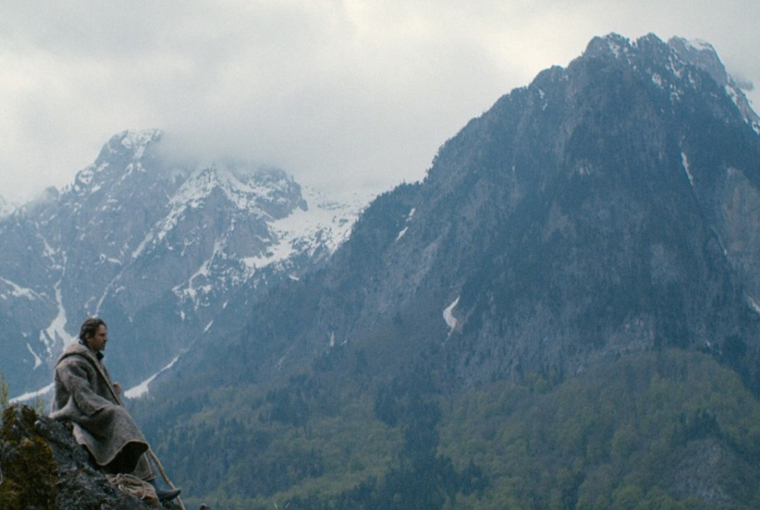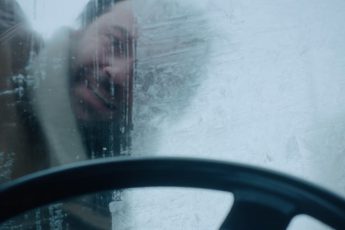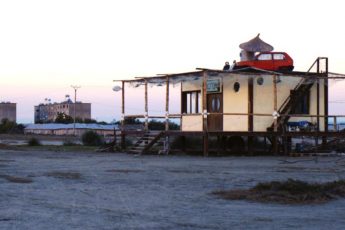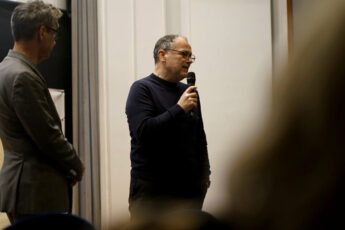A Message from Albania
Robert Budina’s A Shelter Among the Clouds (2018)
Vol. 96 (Summer 2019) by Colette de Castro
Screening in the Religion Class section of the TIFF 2019 film festival in Cluj, but also nicely fitting in with this year’s Albanian retrospective, Robert Budina’s A Shelter Among the Clouds is a stunningly shot feature dealing with religious differences in Albania.
Besnik (Arben Bajraktaraj) lives with his elderly father in the Albanian mountains, high above civilization. He is a serious man, quietly invested in his community. An unnamed mental disorder often leaves him gazing off into space, and sometimes causes him small seizures. We come to understand that this disorder was at least partly brought about by a family drama – Besnik was forbidden to marry the woman he loved, because her family was considered incorrigible by his Communist father. This trauma has left him silent and thoughtful, but despite appearances, Besnik is a very clever man. Above all, he wants to make things run smoothly in the village, among his family and friends.
One day, while praying at the small, picturesque mosque on the edge of the village, our protagonist seems to be struck by a vision. As the other congregants leave, Besnik approaches the wall of the mosque in a daze and begins removing pieces of plaster, only to reveal the beginning of a face depicted in gold. This small act will launch a series of potentially life-changing events, even though in this film it’s more about things ultimately staying the same.
The religious tension which is created in the village by the revelation of a Christian icon in a mosque, is reflected in the microcosm of Besnik’s family. As his father grows sick – Besnik had put him to sleep in the stable with the goats because he thought it would be good for his lungs, but to no avail – his sister and brother arrive with their spouses and children. His brother, who lives in Greece, has become Orthodox, and his sister is Muslim. The family can hardly eat at the same table without getting into an argument about the food. This frustrates Besnik, who takes himself off for days at a time, sleeping in his cabin in the mountains. The only people he can really stand are his nieces and nephews, but they too are often caught up in everyday frustrations of religious difference.
The work of Romanian cinematographer Marius Panduru – who collaborates with Radu Jude on a regular basis – helps the story evolve. The film is shot in a picturesque landscape among ragged hills. It’s a relatively stark landscape but with just enough comings and goings to make it visually stimulating. This simple story about a remarkable feat of religious coexistence manages to come across with verve and vigor, despite the religious differences sometimes being too painstakingly dwelt upon. Though it doesn’t come to the fore too often, the historical truth behind the story also gives it power. But ultimately, it’s really a simple story with a simple message. As Besnik asks his family: “How can we love God when we don’t love each other?”.




Leave a Comment